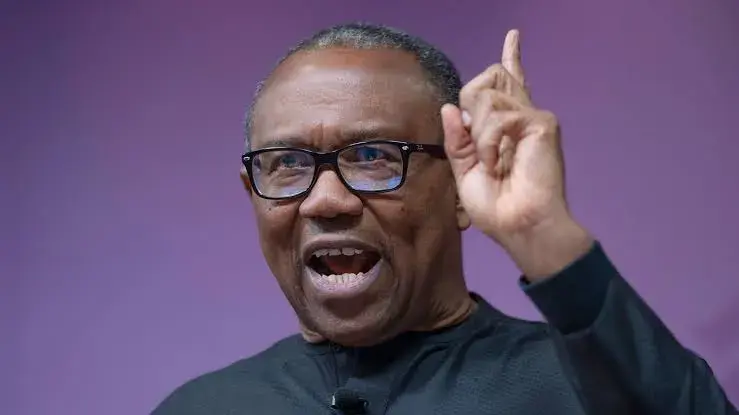Former Labour Party presidential candidate, Peter Obi, has voiced serious concern over the country’s rising debt burden.
In a statement shared via his X handle, Peter Obi cautioned that Nigeria’s current fiscal direction poses a threat to future generations and risks deepening hardship for millions of citizens.
His remarks follow the Senate’s recent approval of a new round of ‘borrowings’ for the country.
Obi noted that the latest approvals include external loans amounting to $21 billion, €2.2 billion, and ¥15 billion for the 2025–2026 fiscal period, alongside a domestic bond issuance of ₦750.98 billion and a €65 million grant.
According to him, these additions push Nigeria’s total public debt to an estimated ₦187 trillion, with projections indicating it could surpass ₦200 trillion by the end of the year.
“With an already existing public debt of about N149.39 trillion as at the first quarter of 2025, adding the approved loans of about N37.2 trillion brings our current total debt to about N187 trillion, with concerns that our debt might likely be over N200 trillion by the end of 2025,” he said.
READ ALSO
“We are accumulating exponential levels of unsustainable debt with little or nothing to show for it in critical areas such as education, healthcare, electricity generation, and security,” he stressed
He further stressed that Nigeria accumulates very high levels of debt with nothing to show for it in the imperative economic and societal sectors
“While the year-on-year increase is about N27.72 trillion and the quarter-on-quarter increase is about N4.72 trillion, we are accumulating very exponential levels of unsustainable debt with little or nothing to show for it in critical areas such as education, healthcare, electricity generation, security of lives and property, and pulling people out of poverty.”
Despite a significant rise in annual security expenditure—from ₦2.98 trillion in 2023 to ₦4.91 trillion projected for 2025—insecurity remains widespread, with over 10,217 lives lost and 672 communities displaced in the past two years.
Peter Obi further lamented the state of basic infrastructure, noting that approximately 135,000 kilometres of Nigeria’s 195,000 km road network remain unpaved, while national electricity generation continues to stagnate below 5,000 megawatts—insufficient for a population exceeding 200 million.
“Infrastructure decay persists across the country, with about 135,000km of our 195,000km of roads remaining unpaved, largely unmotorable, and unusable. It is the same depressing situation in almost all sectors of the economy, with the power sector an unquestionable example, with less than 5,000 MW supplied for over 200 million Nigerians.”
Obi also highlighted disturbing figures on poverty and malnutrition, stating that approximately 133 million Nigerians—representing about 63% of the population—are now considered multi-dimensionally poor.
He referenced a recent report by Médecins Sans Frontières (MSF), which revealed that 652 children have died from malnutrition in Northern Nigeria, with Katsina State identified as one of the hardest-hit areas.
“This is a country blessed with enormous resources, yet nobody should go to bed hungry,” he said. “A persistent deficiency in leadership has thrown the majority of our citizens into increasing poverty.”
He appealed to the government to tie the debts to productive investments with measurable outcomes and chalked the rise in debt to unaccountability on the part of the government.
“Borrowing is not inherently bad if it is sustainable and tied to productive investments with measurable outcomes. Unfortunately, this current pattern of borrowing without accountability, without transparency, and without transformational impact is simply mortgaging the future of our children. The government should consider the inter-generational consequences of their unsustainable borrowings and show at least a minimum consideration and interest in future of young and unborn Nigerians.”
He urged the government to avoid reckless borrowing and “fiscal indiscipline” to create a New Nigeria.
“We must return to a disciplined and prudent economic management culture, cutting the cost of governance, blocking leakages, investing in human capital, and building a productive economy. Nigeria cannot continue to borrow recklessly while poverty deepens and public trust erodes.
It is time to stop this fiscal indiscipline. We must build a New Nigeria, where leadership is responsible, development is people-centred, and every kobo borrowed or spent delivers a measurable impact to achieve sustainable and inclusive development and growth.”















